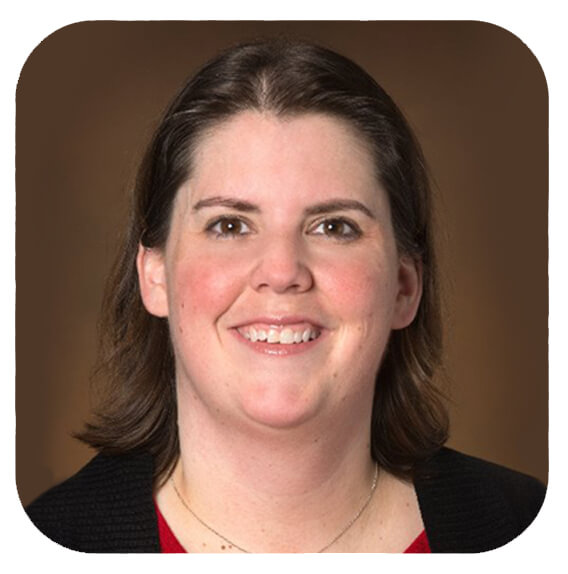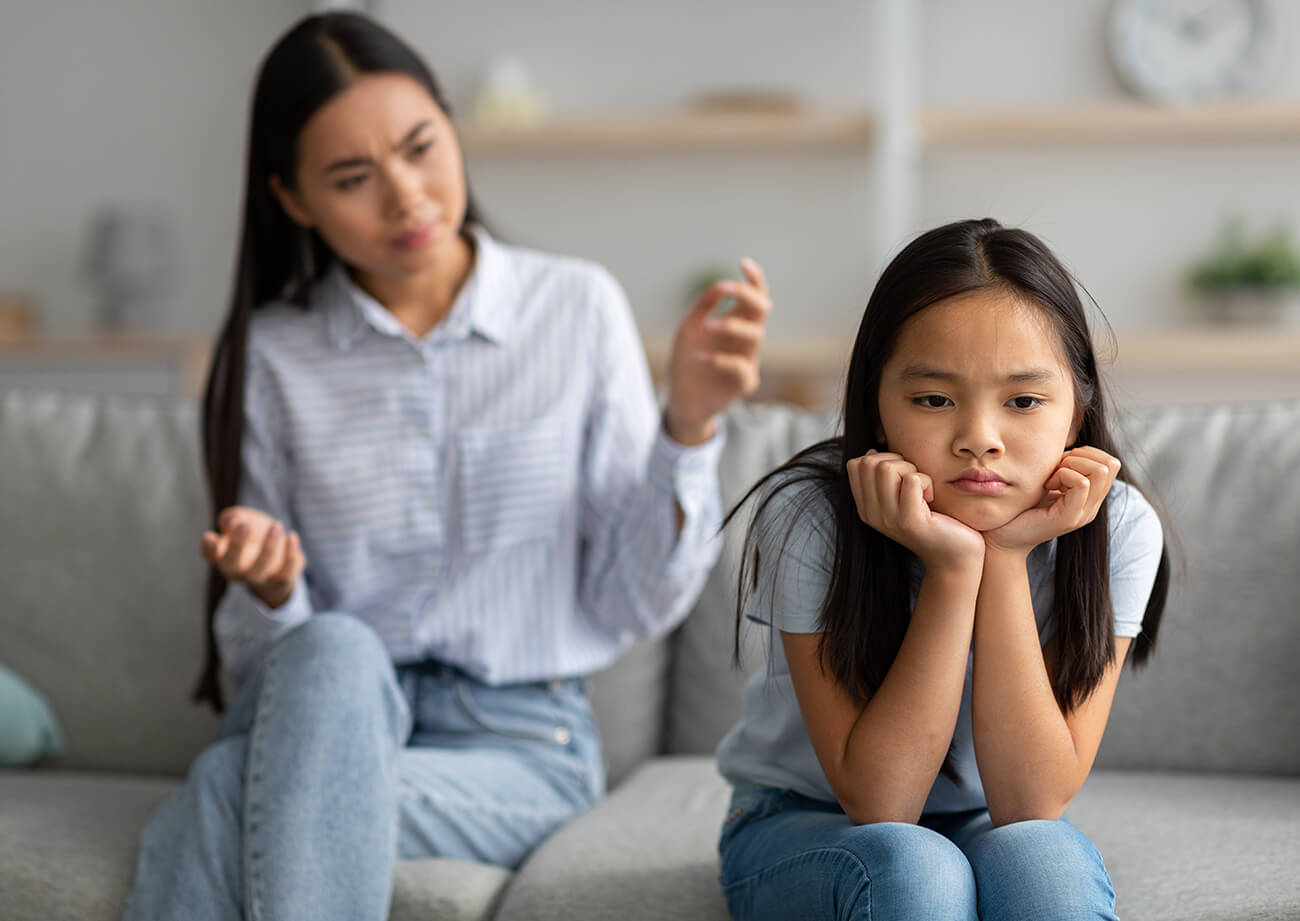Talking to Kids About Body Safety
IT’S A KID’S JOB TO BE A KID. IT’S THE JOB OF ADULTS TO KEEP KIDS SAFE.
Child abuse prevention shouldn’t be scary. When done well, it can build connections in families, empower children, reduce shame, and build empathy for others.

By ALISON FEIGH
Director, Jacob Wetterling Resource Center
It isn’t one talk.
Talking to body safety is finding opportunities to define and practice safety rules while building skills through ongoing “What If” conversations. These conversations can also bring up blind spots that need to be unpacked.
A facilitator working with a group of Girl Scouts had the following exchange with a middle school girl:
“What if someone asked you to send them a picture of yourself where you weren’t wearing a shirt? What’s one way you could handle that?”
“Well, it depends. Do I like them or not?”
This exchange illustrates one of the greatest challenges in taking on child abuse; very often, the people who are breaking boundaries and/or are abusive are known and liked by many. The people causing the real harm are also usually known and liked by the family who is being actively targeted. To effectively interrupt and prevent abuse, it’s important to set and define boundaries and let your child know that they have the right to say no to anyone asking them to do something against those rules and boundaries, and establish that you won’t be mad at them, even if the person breaking the rules is someone the they or the family is familiar with, knows well, or likes.

ALISON FEIGH
Director, Jacob Wetterling Resource Center
Alison Feigh, MS, is the Director of Jacob Wetterling Resource Center, a program of Zero Abuse Project. In her role as a subject matter expert on child and teen safety, she works with students, parents, youth workers, faith leaders, law enforcement and the media to help prevent childhood abuse and abductions. Alison’s work also includes writing curriculum for youth-serving organizations, training professionals about online challenges kids face and advocating for families of the missing.
Alison has been working in the abuse prevention field for more than 20 years. As a classmate of Jacob Wetterling, she learned early on how important it is to protect children and youth from exploitation. She is especially drawn to prevention in faith-based communities and youth- serving organizations, collaborating with teens regarding technology and helping empower parents to talk with their kids about personal and online safety. She firmly believes that personal and online safety messages can be positive, empowering and accessible. Her safety messages are highlighted in her children’s books, “On Those Runaway Days” and “I Can Play It Safe.” Both titles were released nationally in 2008 by Free Spirit Publishing and have recently been translated into Chinese.
When children are young, it is good to be clear and consistent.
Here are some talking points a parent or guardian can use to establish clear boundaries:
- We check first before we go places with people.
- We don’t keep secrets, especially secrets about safety.
- These are your private parts. (Note: review the proper names for private parts for many reasons, including to reduce shame) The only time someone would touch your private parts is to keep you clean and healthy. I want you to check in with me if someone wants to touch your private parts so we can talk about if it is a clean and healthy touch.
- If you ever meet someone who doesn’t know the rules about bodies and safety, even if it is someone we like, I do want to know. You didn’t do anything wrong and I won’t be mad at you.
- Most people do know the body safety rules, so if you meet someone who doesn’t know the rules, tell someone who does.




Here are additional talking points for conversations within families as children get older:
- You have the right to be safe in your body. If anyone is making you feel unsafe, you have the right to say no, get away, and check in with me or another adult who respects body safety rules. Even if your body freezes and you don’t say no, you can still tell me and I won’t be mad at you. Sometimes bodies freeze when we are overwhelmed or scared.
- Nothing is wrong with you if you meet someone who ignores the rules or hasn’t learned the rules about safety. You haven’t done anything wrong. You can always tell me if you get in over your head.
- People who want what’s best for you want to be one of many people cheering you on. It’s an important warning sign when someone is trying to separate or isolate you from your friends, family, and overall safety net. This isolating behavior can be common both in person and online, so please let me know if someone switches from caring to controlling, whether that’s in person, online, or through another medium or conversation..
- It is important that we pay attention when someone sets a boundary, says no, or seems uncomfortable; remember that it’s not just about saying “no,” but to listen and pay attention to signals that someone might be feeling unsafe. Treating people with understanding and respect online and in person is the first building block to creating healthy friendships and relationships.
These discussion points are not all-encompassing, but are a great place to start.
Ask young people if they have their own “What If” scenarios about safety that they want to discuss. It is much easier to start with these topics when children are young, and build on that foundation as kids get older. That said, remember that it is never too late to start looking at skill-building discussions as a way to connect with and empower kids.
Our team at Zero Abuse Project is working to create a world where every child is free from abuse.
We do this in a holistic way with many different pieces forming the puzzle of safer childhoods. We are passionate about training current and future front-line professionals to serve children in a trauma-informed way, and we advocate for evidence-informed policies that put the safety of children as the priority. We always try to meet people where they are as we equip educators, caregivers, and young people with empowering information about online and personal safety.



By ALISON FEIGH
Director, Jacob Wetterling Resource Center
Alison Feigh, MS, is the Director of Jacob Wetterling Resource Center, a program of Zero Abuse Project. In her role as a subject matter expert on child and teen safety, she works with students, parents, youth workers, faith leaders, law enforcement and the media to help prevent childhood abuse and abductions. Alison’s work also includes writing curriculum for youth-serving organizations, training professionals about online challenges kids face and advocating for families of the missing.
Alison has been working in the abuse prevention field for more than 20 years. As a classmate of Jacob Wetterling, she learned early on how important it is to protect children and youth from exploitation. She is especially drawn to prevention in faith-based communities and youth- serving organizations, collaborating with teens regarding technology and helping empower parents to talk with their kids about personal and online safety. She firmly believes that personal and online safety messages can be positive, empowering and accessible. Her safety messages are highlighted in her children’s books, “On Those Runaway Days” and “I Can Play It Safe.” Both titles were released nationally in 2008 by Free Spirit Publishing and have recently been translated into Chinese.
Resources like these are provided by American SPCC – a national nonprofit dedicated to building positive childhoods for all children by empowering parents and caregivers with research-backed education and support.
This work is made possible by passionate donors and community advocates. Learn how you can get involved and support the mission here.
Previous Section
